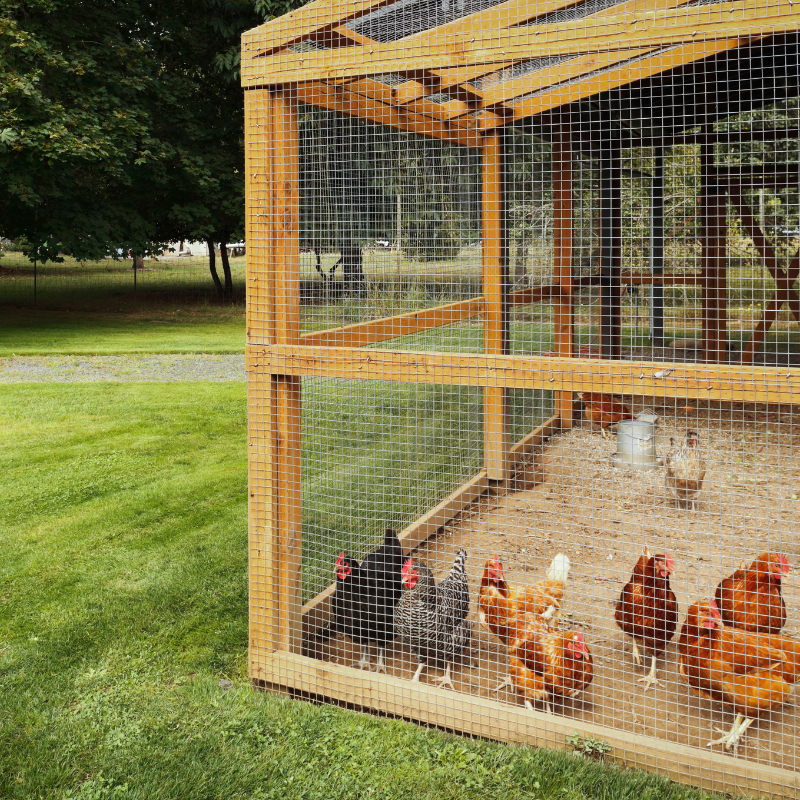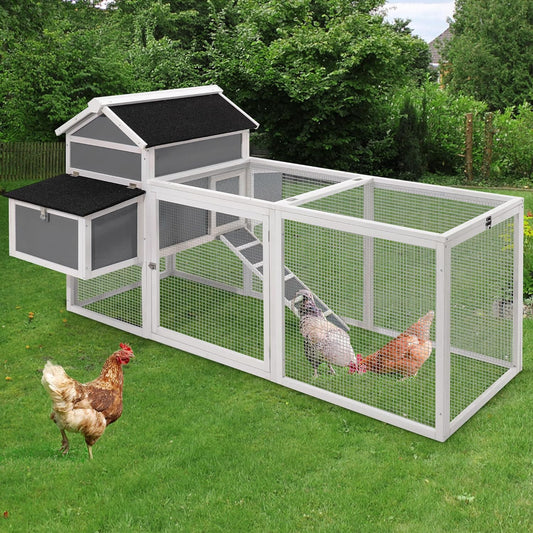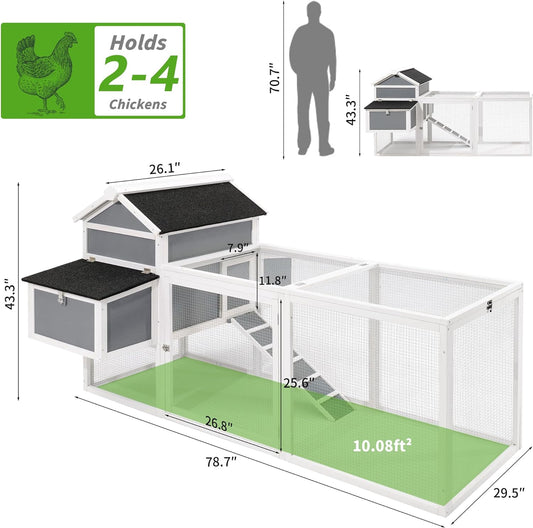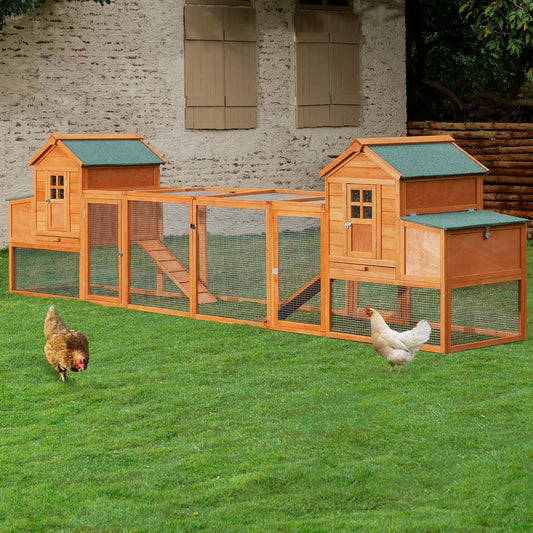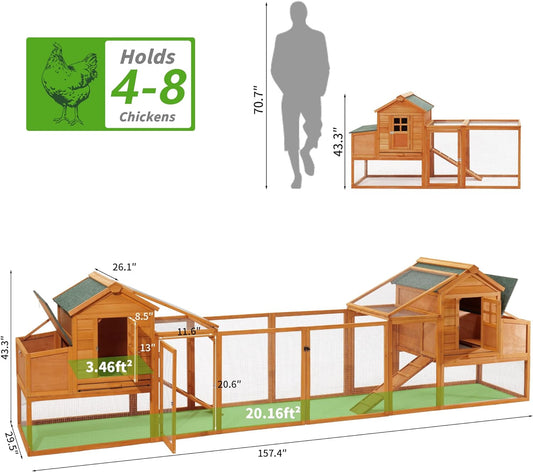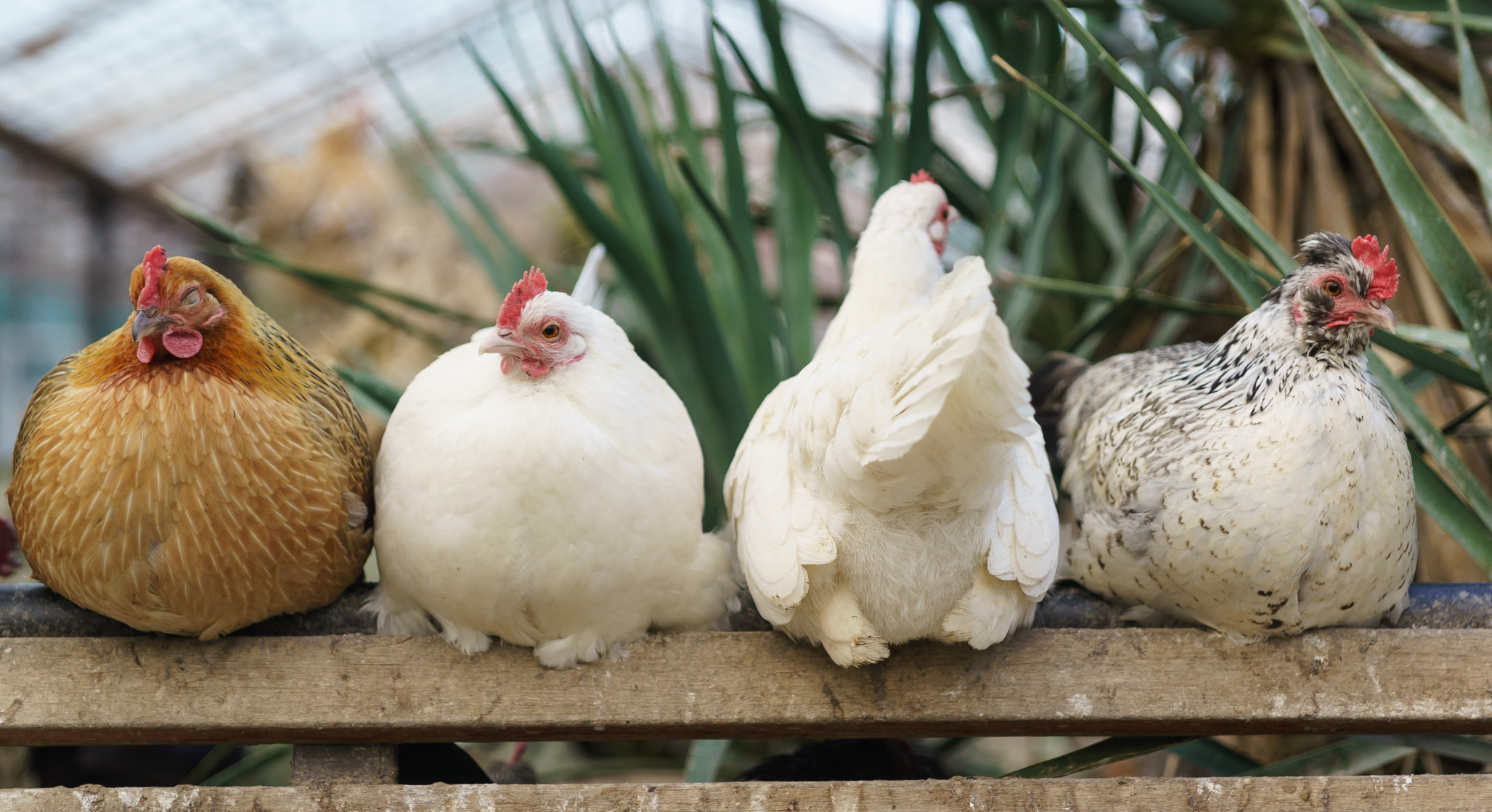
Chicken Coop
Turn your backyard into a cozy retreat for your feathered friends. Shop now and give your chickens the home they deserve!
-
Breltam Outdoor Large Chicken Coops with Run and Metal Wire Fence, Portable Wooden Hen House with Waterproof Roof & Nesting Box for Backyard
Regular price From $209.98Regular priceUnit price / per$499.99Sale price From $209.98Sold out -
Outdoor Chicken Coop Hen House with Nesting Box and Run, Poultry Cage Rabbit Hutch with Floor and Tray for Backyard
Regular price From $209.98Regular priceUnit price / per$489.99Sale price From $209.98Sold out
FAQ
What materials are commonly used to construct chicken coops?
- Wood: Cedar, pine, and fir are popular choices due to their durability and natural resistance to decay.
- Metal: Galvanized steel or aluminum can be used for framing or mesh panels to provide added strength and protection.
- Wire Mesh: Used for ventilation and as barriers, wire mesh is typically made from galvanized steel or PVC-coated wire.
- Plastic: Some coops feature plastic panels or roofing materials for lightweight and weather-resistant construction.
- Hardware: Nails, screws, hinges, and latches made of stainless steel or galvanized metal are commonly used for assembly and security.
How many chickens can a standard-sized chicken coop accommodate?
The number of chickens a standard-sized chicken coop can accommodate depends on its dimensions and the space requirements of the specific chicken breeds. As a general guideline, each chicken should have a minimum of 2 to 4 square feet of space within the coop, with additional space provided in the outdoor run area. Therefore, a coop measuring 4 feet by 8 feet could comfortably house 4 to 8 chickens.
Do chicken coops require any special maintenance?
Chicken coops require regular maintenance to ensure the health and well-being of the chickens. This includes daily tasks such as cleaning the coop bedding, refilling food and water containers, and collecting eggs. Additionally, periodic cleaning and disinfecting of the coop, inspecting for signs of wear or damage, and treating for pests or parasites are essential for maintaining a clean and healthy environment for the chickens.
Can chicken coops be predator-proofed?
Yes, chicken coops can be predator-proofed to protect the chickens from potential threats such as foxes, raccoons, and birds of prey. This can be achieved by installing sturdy hardware cloth or wire mesh around the coop and run area, burying it underground to prevent digging, and securing all access points with latches or locks. Additionally, adding motion-activated lights or alarms can help deter nocturnal predators.
